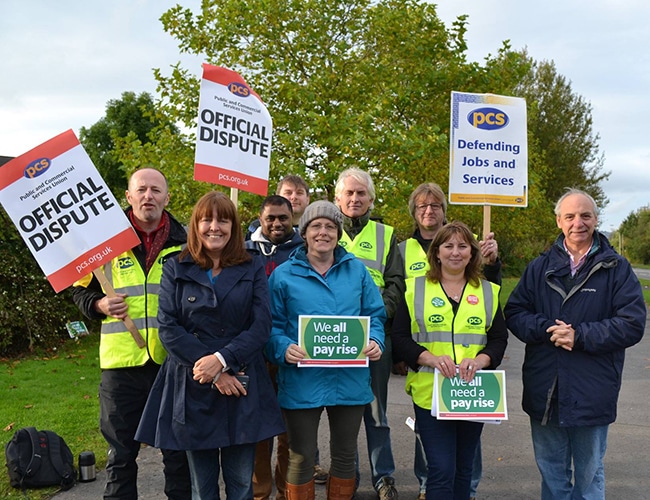- 05/03/2015
- Posted by: Mike Hedges MS
- Category: Assembly Speeches

Loneliness, isolation and befriending
Thank you deputy Presiding officer
I have given 1 minute to Bill Powell
Speaking about loneliness in a chamber of Assembly Members
Most being time poor
Rushing between meetings, assembly events and their constituencies
No time to be lonely but for many elderly people the reality is very different
There is no single cause of loneliness and isolation
But most people who are lonely and isolated will have some of the following characteristics
Elderly, partner either deceased or in a nursing home, mobility problems, family living away, friends either incapacitated deceased or moved.
This is also not a case of people who have been anti social just becoming lonely and isolated.
One case study is Charlotte, not her real name.
A former trade union activist, living in Cardiff, a regular attender at the AGE cross party group
Following the loss of her husband she has suffered from loneliness
A more outgoing, sociable and active person it would be difficult to meet
According to the TNS Loneliness Omnibus Survey for Age UK in April 2014).75,000 over-65s in Wales describe themselves as ‘always or often lonely’ 46%, almost half say that their TV or pet is their main form of company.
This is the saddest statement I have made in this chamber.
Loneliness is a huge issue that affects people all year round with nearly a third of older people in Wales saying they would like to go out more often.
Without the benefit of the Welsh Government free bus pass scheme that number would be substantially higher.
Anyone catching a bus in the day will notice how many bus passes are shown as people get on the bus.
The research also reveals that one in seven people aged over 65 are feeling cut off from society.
Loneliness can be seriously damaging and recent studies have shown it has double the impact of obesity and that the feeling of extreme loneliness can increase an older person’s chances of premature death by 14 per cent.
Being able to take part in community life, with good access to local services and facilities, is a lifeline for many older people.
If an older person cannot get out and about locally they are at risk of poor health, less social contact with others and a reduced quality of life overall.
Increasing opportunities for older people to take part locally can do much to boost independence, combat social isolation and loneliness and promote health and wellbeing.
An age friendly community is one that has the capacity to support older people to enjoy the best possible quality of life. It includes facilities, services and amenities that are accessible and that accommodate the needs of older people to help them to fully participate in society.
Community centres, luncheon clubs and day centres all give opportunities to socialise.
The Welsh Government’s Strategy for Older People in Wales identifies a key challenge ‘to develop communities that are age-friendly while ensuring older people have the resources they need to live’.
The Strategy acknowledges that as the number of older people in our communities is growing, and recognising the health and wellbeing benefits of social connectedness, it is vital that communities become more age friendly and facilitate participation of people of all ages.
It also highlights the importance of older people being full participants in society.
However, many older people come up against barriers that prevent their participation, and what should be an enjoyable stage of life can become a time of loneliness and isolation.
With local authorities facing budget cutbacks, many of the essential facilities and services that older people rely on are under threat.
The decline in local services over recent decades has caused real problems for many older people, particularly those who face additional barriers such as declining mobility, poor health, low incomes or limited social contact. Older people living in rural areas can face acute challenges in accessing facilities and services.
There are many social barriers that can exclude older people from their communities –
These can include:
• physical access problems for people with mobility impairments such as steps, and access for wheelchairs and mobility scooters;
• pavements in a poor condition and street ‘clutter’, which can be hazardous for older people and can pose an increased falls risk;
• a lack of public toilets in the right place – adequate public toilet provision is vital to enable older people to maintain their dignity and participate in community life;
• a lack of places to meet in the community, which can increase social isolation;
• reductions in the number of facilities such as public libraries, which can enable older people to engage activities, and access computer.The ability to Skype or facetime grand children and great grandchildren can have a hugely beneficial effect on the lives of the elderly.
Important as Social care is in dealing with the problems of mobility and personal care
There are other equally important means of supporting the elderly such as the contact the Elderly’s service model.
The Contact the Elderly model is based on a simple yet very effective concept: free monthly tea parties for older people, supported by a network of volunteers, within local communities.
The social gatherings bring individuals together and develop fulfilling friendships and support networks – and thereby help to reduce loneliness and isolation.
Contact the Elderly recruits volunteer drivers, hosts and group coordinators to help arrange the monthly tea parties for small groups of older people
Once a month, each older guest is collected from their home by a volunteer driver, and is taken to a volunteer host’s home, where they join a small group for tea, chat and companionship.
The group is warmly welcomed by a different host each month, but the charity’s drivers and older guests remain the same. This ensures that over the months and years, acquaintances turn into friends and loneliness is replaced by companionship
Simple changes
• Decisions about changes to services and facilities must take older people’s needs into account through effective engagement and consultation.
• Local authorities must ensure that streets are safe and accessible, with good lighting. Pedestrian crossings must allow sufficient time to cross roads, there must be a means of crossing the road in a mobility scooter, signage should be easily visible, and pavements must be well maintained and be free of obstruction.
• The vital role of library services in facilitating digital inclusion must be protected and extended to ensure that such services are accessible to older people.
• The Welsh Government’s Community Toilet Grant scheme, which provides local authorities with grant funding to encourage local businesses to open their facilities to the public, must be better publicised and promoted if it is to form part of a co-ordinated sustainable solution to toilet provision.
• The Welsh Government to consider supporting befriending projects across Wales when the current funding ends in 2016. If the projects end, the experience and knowledge of staff and volunteers will be lost.
• In my experience a large number of older men attempt to overcome loneliness by going to the pub and drinking all day. Others both men and women overcome loneliness by drinking at home.
We need a better understanding of how many older people need support to fight their addiction to alcohol.
Befriending
Befriending is a simple yet strategic way to tackle social isolation. Research during the late 1990s made the clear link between older people living in isolation and the emergence of befriending. Befriending schemes seek to address the fact that older age brings challenges which, without support, can be daunting and lead to social isolation – which means loneliness or lack of contact with other people.
The outcomes of befriending schemes include:
• Reduced loneliness and increased wellbeing through improved social interaction.
• Increased confidence and ability to meet the challenges and opportunities of ageing.
• Increased understanding and use of rights and awareness and uptake of services leading to greater independence and choice for older people.
The research found that most befriending schemes rely on volunteers to help deliver the service ‘because they are a cheaper means to service provision, and because they are felt to have skills and attributes which a paid befriender could not bring to the role and it concluded that while befriending is not a mechanism for ‘tackling the root cause of disadvantage’, it can ‘ameliorate the worst aspects of isolation and exclusion from community participation’ and can ‘make a valued and valuable contribution to people’s lives’.
In 2013, the Welsh Government’s Social Research division published a report entitled ‘Let’s Start Assessing Not Assuming’. While it needs to be stressed that this is not a policy document, it is arguably the most informative and comprehensive assessment of social isolation and appropriate interventions to tackle the problem in Wales.
The report states that ‘Social isolation is a risk to independent living because it has been associated with higher rates of morbidity and mortality, posing a similar risk to health as other common factors such as smoking or heart disease.
In terms of defining social isolation, the Welsh Government report finds that ‘while clear definitions exist in the academic literature, they do not seem to have been successfully transferred to policy or practice.
There is a general understanding of situations that can lead to social isolation – such as living alone, bereavement, poor access to local transport and facilities, for example.
Key findings from the report were:
• Social isolation is identified within the Strategy for Older People in Wales but the strategy stops short of identifying befriending specifically as a way of tackling it.
• The same is true of the Older People’s Commissioner whose 2013-2017 Framework for action highlights loneliness and social isolation as issues, but does not mention befriending as a solution.
Since 2012, the Big Lottery Fund in Wales announced it was investing some £20 million in 30 projects operating across Wales via the AdvantAGE programme. 20 of the 29 projects funded via AdvantAGE are befriending projects.
So far this has resulted in 29 full time staff, 35 part time staff, 1,141 volunteers and 6,825 beneficiaries.
Most of the schemes are finishing in 2016. If this goes ahead then the experience and knowledge of staff and volunteers will be lost; expertise in a much needed area.
Everyone hopefully will grow old and what we must ensure is that the golden years are not sad and lonely ones.

